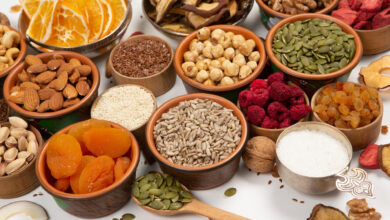In recent years, the debate over organic versus non-organic foods has grown increasingly prominent. As consumers become more health-conscious, many are turning to organic produce and products, believing they offer superior nutritional benefits. But what does the research say? Let’s delve into the nutritional differences between organic and non-organic foods to help you make informed choices for your diet.
Understanding Organic and Non-Organic
Before we compare the nutritional aspects, it’s essential to clarify what organic and non-organic foods are.
- Organic Foods: These are produced without synthetic pesticides, herbicides, or fertilizers. Organic farming practices also emphasize biodiversity, soil health, and ecological balance. In the U.S., organic foods are regulated by the USDA, which mandates strict adherence to organic farming methods.
- Non-Organic Foods: Also known as conventional foods, these can be grown with synthetic chemicals, genetically modified organisms (GMOs), and other modern agricultural techniques designed to maximize yield and minimize pest damage.
Nutritional Differences
1. Vitamins and Minerals
Research has shown that there are some differences in vitamin and mineral content between organic and non-organic foods. A study published in the British Journal of Nutrition found that organic crops tend to have higher levels of antioxidants, including polyphenols, which are beneficial for health. Organic produce also tends to have higher levels of vitamin C and certain minerals due to the healthier soil in which they are grown.
2. Pesticide Residues
One significant concern for many consumers is pesticide exposure. Organic foods generally have lower levels of pesticide residues compared to non-organic foods. A study from the Environmental Health Perspectives indicated that individuals consuming organic produce had lower levels of pesticide metabolites in their urine, suggesting that organic foods can reduce pesticide exposure.
3. Omega-3 Fatty Acids
When it comes to animal products, such as meat and dairy, organic options often have a higher omega-3 fatty acid content. This is particularly true for animals that are pasture-raised and fed organic feed. Omega-3s are essential for heart health and cognitive function, making this a noteworthy difference for those consuming animal products.
4. Taste and Freshness
While taste is subjective, many consumers report that organic fruits and vegetables taste fresher and more flavorful than their non-organic counterparts. This could be attributed to the different farming practices, including crop rotation and reduced use of preservatives.
Environmental Considerations
While not directly related to nutrition, it’s worth noting that organic farming practices tend to be more environmentally sustainable. They often promote biodiversity, reduce pollution from synthetic chemicals, and conserve water. For consumers concerned about the environmental impact of their food choices, opting for organic products may align more closely with their values.
The Bottom Line
When considering whether to choose organic or non-organic foods, it’s essential to weigh the nutritional differences alongside personal preferences, budget, and accessibility. While organic foods may offer some nutritional advantages and lower pesticide exposure, non-organic foods still provide essential nutrients that contribute to a healthy diet.
Ultimately, the best choice is to prioritize a well-balanced diet rich in fruits, vegetables, whole grains, and lean proteins, whether they are organic or non-organic. If you have the means, choosing organic can be a beneficial option, but the most important factor is to ensure that you are eating a variety of nutrient-dense foods that support your overall health.
Conclusion
The organic versus non-organic debate is complex, with compelling arguments on both sides. Understanding the nutritional differences can help consumers make informed choices that align with their health goals and values. Whether you choose organic or non-organic, focusing on whole, minimally processed foods is the key to a healthier lifestyle. Happy eating!




